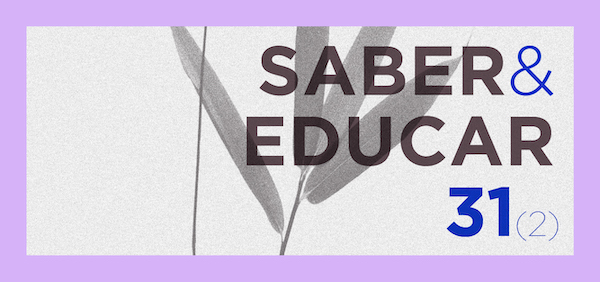Legacy and validity of the pedagogical thought of Paulo Freire for the commitments of the educational task of the 21st century
DOI:
https://doi.org/10.25767/se.v30i2.29339Keywords:
Paulo Freire, pedagogical thought, ethical-politic commitment, UNESCO 2022Abstract
The educational life of Paulo Freire and his pedagogical thought not only constitute a historical legacy of the 20th century, but also leave an invaluable inspiration to make ours the challenges that UNESCO (2022) places in order to give answers to the necessary transformations in this advance of the 21st century. Its ethical-political commitment to make the common and public educational good continues to be an exercise of shared responsibility for all —given a context of growing inequities and deepening of training practices that reproduce a dehumanizing and predatory mechanistic order of life. In this complex framework, his hopeful look and transforming way of doing are an invitation to re-imagine education for a sustainable and peaceful future together, as UNESCO proposes. It is about making real the possibility of a dialogical pedagogy with which to concretize processes of regenerative democratization of a healthy educational life. Life that enhances autonomy, taking care for the common goods that make sense of and guide its learning dynamics on the sustainable basis of solidary creative critical training.
References
Butler, J. (2021). La fuerza de la no violencia. La ética en lo político. Paidós.
Cendales, L., Mejía, M.R., Muñoz, J. (Comp. y Eds.) (2016). Pedagogías y metodologías de la educación popular. Ediciones desde abajo.
Haraway, D. (2020). El mundo que necesitamos. Icaria.
Hooks, B. (2021). Enseñar a transgredir. La educación como práctica de la libertad. Capitán Swing.
Krznaric, R. (2022). El buen antepasado. Cómo pensar a largo plazo en un mundo cortoplacista. Capitán Swing.
Freire, P. (1970). Pedagogía del oprimido. Siglo XXI
Freire, P. (1971). La educación como práctica de la libertad. Siglo XXI
Freire, P. (1991). Pedagogía de la esperanza. Siglo XXI
Freire, P. (1997a). A la sombra de este árbol. El Roure.
Freire, P. (1997b). Pedagogía de la autonomía. Saberes necesarios para la práctica educativa. Siglo XXI.
Gadotti, M. (2003). Pedagogía de la praxis. Diálogos L’Ullal Ediciones
Pérez Alonso, E., Girón, A., Ruiz-Giménez, J.L. (Coords.) (2019). Los cuidados. Saberes y experiencias para cuidar los barrios que habitamos. Libros en Acción.
UNESCO. (2015). Replantear la educación ¿Hacia un bien común mundial? Organización de las Naciones Unidas para la Educación, la Ciencia y la Cultura.
UNESCO. (2022). Reimaginar juntos nuestros futuros. Un nuevo contrato social para la educación. Organización de las Naciones Unidas para la Educación, la Ciencia y la Cultura.
Vitón, M.J. (en prensa). Cuidado de praxis pedagógicas transformadoras y compromisos socioeducativos emancipatorios. En A. Sierra González (Ed.). Reinvención de los estilos de vida desde la pandemia (Enfoques interdisciplinares sobre procesos de continuidad y ruptura). Laertes.
Vitón, M.J. y Gonçalves, D. (2022a). Desafíos societales y compromisos coeducativos: aprendizajes situados y retos pedagógicos transformadores. En P. Arcoverde Cavalcanti (Org.) Educação: Teorias, Métodos e Perspectivas VI. Artemis. 53-65. www.doi.org/10.37572/EdArt_2705225696
Vitón, M.J. y Gonçalves, D. (2022b). Retos de la formación docente en un contexto de complejidades crecientes: ciudadanía democratizadora y desafíos educativos. En E. Oliveira Medeiros (Coord.). Teoria da Educação e Formação de Professores: Conceções, Perspetivas e Práticas. MIL: Movimento Internacional Lusófono. 238-249.
Vitón, M.J, Muñoz Sánchez, M. (2022). Aprendizajes situados de un prácticum para desarrollo de una ciudadanía intercultural crítica transformadora: reflexiones pedagógicas de la acción educativa recreativa. En O.F. von Feigenblatt, B. Peña-Acuña, M.J. Cardoso-Pulido (Eds.). Aprendizaje personalizado y education maker. Nuevos paradigmas didácticos y otras aproximaciones. Octaedro. 99-125.
Downloads
Published
How to Cite
Issue
Section
License

This work is licensed under a Creative Commons Attribution-NonCommercial-NoDerivatives 4.0 International License.
- The opinions expressed by the authors are their exclusive responsibility.
- The journal reserves the right to make the original, normative changes, spelling and grammar, in order to maintain the standard language of worship, while respecting the style of the authors.
- Authors retain copyright and grant the journal right of first publication with the work simultaneously licensed under a Creative Commons Attribution License (BY-NC-SA 4.0) that allows others to share the work with an acknowledgement of the work's authorship and initial publication in this journal.
- Authors are able to enter into separate, additional contractual arrangements for the non-exclusive distribution of the journal's published version of the work (e.g., post it to an institutional repository or publish it in a book), with an acknowledgement of its initial publication in this journal.
- Authors are permitted and encouraged to post their work online (e.g., in institutional repositories or on their website) prior to and during the submission process, as it can lead to productive exchanges, as well as earlier and greater citation of published work (See The Effect of Open Access).
PRIVACY STATEMENT
The names and email addresses entered in this journal site will be used exclusively for the stated purposes of this journal and will not be made available for any other purpose or to any other party.






